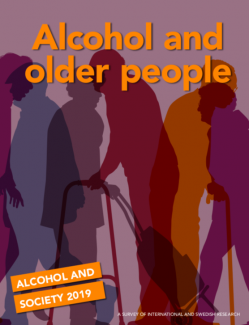Search
Placebo Response and Media Attention in Randomized Clinical Trials Assessing Cannabis-Based Therapies for Pain A Systematic Review and Meta-analysis
Abstract
Importance Persistent pain is a common and disabling health problem that is often difficult to treat. There is an increasing interest in medicinal cannabis for treatment of persistent pain; however, the limited superiority of...
Association of Obsessive-Compulsive Disorder and Obsessive-Compulsive Symptoms With Substance Misuse in 2 Longitudinal Cohorts in Sweden
Abstract
Importance Neurobiological models have postulated shared neural mechanisms between obsessive-compulsive disorder (OCD) and substance use disorders, but results from clinical and epidemiological studies are conflicting or even...
Patient perspectives on depot buprenorphine treatment for opioid addiction – a qualitative interview study
Background
Recently developed buprenorphine depot injections have the potential to reduce risk for diversion and misuse, and to increase adherence with fewer visits for supervised intake. However, it is unclear how patients perceive this...
Real-world effectiveness of pharmacological treatments of opioid use disorder in a national cohort
Abstract
Aim
To investigate the real-world effectiveness of pharmacological treatments (buprenorphine, methadone) of opioid use disorder (OUD).
Design
A nation-wide, register-based cohort study.
Setting
Sweden.
Participants
All...
Internet-based therapy versus face-to-face therapy for alcohol use disorder, a randomized controlled non-inferiority trial.
The “Black Box” of Treatment: Patients’ Perspective on What Works in Opioid Maintenance Treatment for Opioid Dependence
Staff experiences of encountering and treating outpatients with substance use disorder in the psychiatric context: a qualitative study
Abstract
Background
High comorbidity exists between mental illness and substance use disorders (SUD). Patients in psychiatry living with problematic alcohol or drug consumption can experience a sense of exclusion, where seeking help for...
Sildenafil and Suicide in Sweden
Abstract
Much theory asserts that sexual intimacy sustains mental health. Experimental tests of such theory remain rare and have not provided compelling evidence because ethical, practical, and cultural constraints bias samples and results...
Internet‐Based Therapy versus Face‐To‐Face Therapy for Alcohol Use Disorder: A Randomized Controlled Non‐Inferiority Trial
Abstract
Background and aims
Most people with alcohol use disorder (AUD) are never treated. Internet‐based interventions are effective in reducing alcohol consumption and could help to overcome some of the barriers to people not seeking...
Reducing Risky Alcohol Use via Smartphone App Skills Training Among Adult Internet Help-Seekers: A Randomized Pilot Trial
Alcohol is one of the leading risk factors for global disease burden and overconsumption leads to a wide variety of negative consequences in everyday life. Digital interventions have shown small positive effects in contributing to...
Associations of Psychosocial Factors with Multiple Health Behaviors: A Population-Based Study of Middle-Aged Men and Women
Abstract
Background: The health behaviors smoking, risky alcohol consumption, insufficient physical activity, and poor diet constitute the main contributors to non-communicable diseases. Clustering of risk behaviors is common and...
An Electronic Screening and Brief Intervention for Hazardous and Harmful Drinking Among Swedish University Students: Reanalysis of Findings From a Randomized Controlled Trial Using a Bayesian Framework
ABSTRACT
Background: Due to a resurgent debate on the misuse of P values, the Journal of Medical Internet Research is hosting a standing theme issue inviting the reanalysis of (primarily digital health) trial data using a Bayesian...
Effect of Tobacco Control Policies on the Swedish Smoking Quitline Using Intervention Time-Series Analysis
Abstract
Objectives: To coherently examine the responsiveness of the Swedish National Tobacco Quitline (SNTQ) to different types of anti-smoking policies over an extended period of calendar time.
Design: Quasi-experimental design with an...
Changes in Alcohol Consumption after Treatment for Depression: A Secondary Analysis of the Swedish Randomised Controlled Study REGASSA
Abstract
Objectives: Mental health problems and hazardous alcohol consumption often co-exist. Hazardous drinking could have a negative impact on different aspects of health and also negatively influence the effect of mental health...
Measuring Drinking Motives in Undergraduates: An Exploration of the Drinking Motives Questionnaire-Revised in Swedish Students
What is the Link Between Unemployment and Alcohol Use?
Youth unemployment has remained stable at a high-level in many countries over the past several decades.
Over the same period, evidence has emerged which suggests that unemployment can negatively affect an individual’s mental and physical...
Taking a Stand: An Untapped Strategy to Reduce Waterpipe Smoking in Adolescents
Waterpipe smoking (otherwise known as shisha, hookah, narghile, goza, and hubble bubble ) is an increasing global health concern with evidence suggesting particularly high prevalence amongst adolescents.
Despite clear evidence for the...
Alcohol and Older People
Immigration Status and Substance Use Disorder-Related Mortality in Sweden
Objectives: First-generation immigrants, in many countries, are healthier than their native counterparts. This study examined the association between first- and second-generation immigrant status and alcohol- or drugs other than alcohol...
Share the Knowledge: ISSUP members can post in the Knowledge Share – Sign in or become a member


